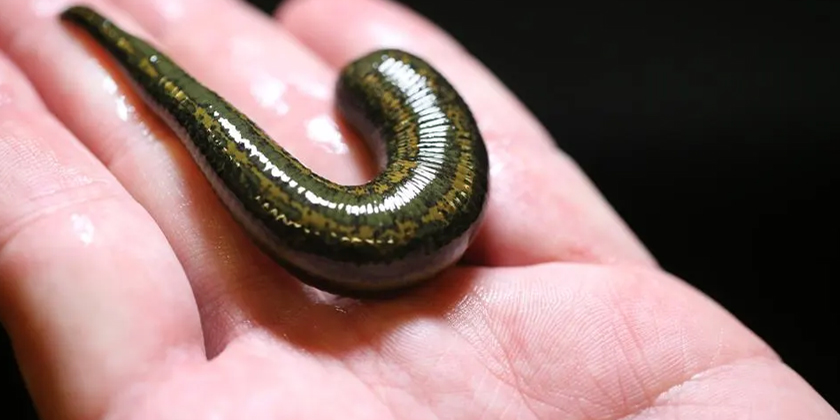Modern Medicine’s Perspective on Historical Leech Therapy in Psychiatry
Leech therapy in psychiatry refers to the historical practice of using medicinal leeches for bloodletting to treat mental disorders like depression or mania, based on the outdated humoral theory. Modern medicine views this practice as ineffective for mental health and largely obsolete. However, leeches do have specific niche applications in contemporary medicine. This guide examines leech therapy in psychiatry’s historical context and its current perspective in 2025.
Historical Context of Leech Therapy in Psychiatry
Leech therapy in psychiatry was deeply rooted in the humoral theory, a medical paradigm that dominated from ancient Egypt (around 1500 BCE) until the 19th century. This theory posited that mental disorders, like physical ailments, resulted from imbalances in the body’s four humors: blood, phlegm, yellow bile, and black bile. Bloodletting, often performed with leeches, was believed to restore this balance and thereby alleviate symptoms of mental illness. This practice significantly shaped early approaches to mental illness treatment.
Why Leeches Were Used
Leeches were applied to remove “excess” blood, which was thought to be the cause of conditions such as melancholy or mania:
- Ancient Practices: Physicians in ancient Egypt and Greece, including notable figures like Galen, utilized leeches for a wide range of systemic ailments, including those believed to affect mental health.
- Medieval Era: Leeches were often preferred over other bloodletting methods during the medieval period due to being less painful, making them a popular choice for treating perceived nervous system disorders.
- 19th Century: Benjamin Rush, often considered the “father of American psychiatry,” notably prescribed leeching for conditions like hypochondriasis (a form of depression), believing it could “reset the patient’s constitution.”
Decline in Psychiatric Use
By the late 18th century, historical psychiatry began to undergo a significant transformation. The rejection of humoral theories, coupled with the burgeoning asylum movement and a growing focus on the brain as the central organ of mental illness, marked the emergence of modern psychiatry. Consequently, bloodletting, including leech therapy in psychiatry, rapidly fell out of favor due to:
- Scientific Advances: A deeper understanding of human physiology and the rise of microbiology disproved the notion that humoral imbalances were the cause of disease.
- Moral Therapy: Early asylums started to introduce more humane, psychological approaches to care, gradually replacing invasive physical methods.
- Lack of Efficacy: Crucially, there was no empirical evidence to support that leeching produced positive outcomes for mental illness treatment.
Modern Medicine’s View on Leech Therapy in Psychiatry
Modern psychiatry, operating under the comprehensive biopsychosocial model, regards leech therapy in psychiatry as entirely obsolete for mental health treatment. The field now prioritizes evidence-based approaches such as psychotherapy and pharmacotherapy over outdated historical practices like bloodletting in mental health.
Why It’s Ineffective for Psychiatry
- No Psychiatric Benefit: The bioactive compounds found in leech saliva (e.g., hirudin, analgesics) have no proven therapeutic effect on the underlying mechanisms of mental disorders.
- Brain-Based Focus: Modern psychiatry primarily targets neurochemical imbalances, cognitive processes, and psychological factors as the basis for mental illness, rather than humoral imbalances.
- Ethical Concerns: The use of invasive, unproven treatments conflicts with the ethical principles of patient-centered care and evidence-based medicine that define modern psychiatry.
Modern Uses of Leech Therapy
While entirely irrelevant for mental illness treatment, medicinal leeches do have a specific, FDA-approved niche in modern medicine:
- Microsurgery: They were FDA-approved in 2004 for managing venous congestion in reconstructive surgery, particularly in cases of reattached digits or tissues where blood flow is compromised.
- Pain Relief: Some studies indicate that leech therapy can provide temporary pain relief in conditions like osteoarthritis, likely due to the analgesic compounds present in leech saliva.
- Inflammation: The anti-inflammatory agents in leech saliva can be beneficial in treating localized inflammatory conditions, such as varicose veins.
Risks and Historical Lessons
The historical use of leech therapy in psychiatry serves as a powerful cautionary tale about the dangers of unproven treatments:
- Infection Risk: Leeches naturally carry Aeromonas bacteria, which can cause significant infections, necessitating the prophylactic use of antibiotics if used in modern medical contexts.
- Overuse: The “leech craze” of the 19th century led to the overharvesting and environmental depletion of medicinal leech populations.
- Misguided Theory: The reliance on humoral-based treatments significantly delayed the development and implementation of truly effective mental health care for centuries.
Modern psychiatry learns from this history by rigorously emphasizing evidence-based practice and continuous scientific research to advance patient care.
FAQs About Leech Therapy in Psychiatry
- Was leech therapy ever effective for mental health? No, leech therapy in psychiatry lacked any scientific evidence of effectiveness and was based on the outdated humoral theory.
- Why did historical psychiatrists use leeches? They believed that bloodletting in mental health could balance bodily humors, which they thought were the cause of disorders like depression and mania.
- Does modern psychiatry use leech therapy? No, modern psychiatry relies on scientifically validated treatments such as psychotherapy and medications, not leeches.
- What are modern uses of medicinal leeches? Leeches are currently used in microsurgery to relieve venous congestion and, in some cases, for temporary pain relief in conditions like osteoarthritis, but not for mental illness treatment.
Conclusion: Leech Therapy in Psychiatry as a Historical Footnote
From a modern perspective, leech therapy in psychiatry is an obsolete practice rooted in discredited humoral theory, offering no benefit for mental health. While medicinal leeches have found a legitimate place in microsurgery and for certain types of localized pain management, modern psychiatry relies on evidence-based mental illness treatment modalities like cognitive behavioral therapy (CBT) and pharmacotherapy. The history of bloodletting in mental health serves as a crucial reminder of the importance of scientific rigor in advancing patient care and prioritizing proven therapies.



